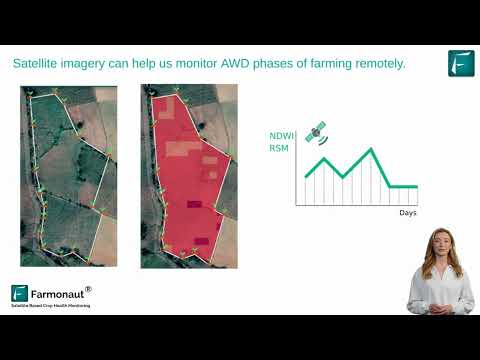Iowa’s Agricultural Dilemma: Balancing Crop Protection Laws with Public Health Concerns
“Iowa, a top agricultural state, produces over 2 billion bushels of corn annually, potentially affected by new crop protection laws.”
In the heartland of America, a complex debate is unfolding that pits agricultural interests against public health concerns. Iowa, known for its vast cornfields and robust farming industry, finds itself at the center of a contentious issue surrounding crop protection laws and their potential impact on public health. As we delve into this multifaceted topic, we’ll explore the intricate balance between supporting farmers, ensuring food security, and safeguarding the well-being of communities across the state and beyond.
The Roundup Controversy: A Catalyst for Change
At the heart of this agricultural dilemma lies the widespread use of glyphosate, the active ingredient in the popular weedkiller Roundup. This herbicide has been a cornerstone of modern farming practices, praised for its effectiveness in crop management and soil conservation. However, recent years have seen a surge in glyphosate lawsuits, with plaintiffs claiming that exposure to the chemical has led to serious health issues, including cancer.
Bayer, the company that acquired Monsanto (Roundup’s original manufacturer), now faces approximately 177,000 lawsuits related to Roundup. This legal onslaught has prompted the company to set aside a staggering $16 billion to resolve claims. The sheer scale of these legal challenges has led Bayer and agricultural groups to push for legislative relief, arguing that the current situation is unsustainable for both the company and the farming industry at large.

Legislative Efforts and Public Response
In response to these challenges, recent legislative efforts in Iowa and several other states aim to provide chemical companies with legal safeguards against lawsuits claiming that their products, particularly Roundup, cause cancer. These proposed laws would protect pesticide manufacturers from legal actions regarding failure to warn consumers about cancer risks, provided that their product labels comply with the U.S. Environmental Protection Agency (EPA) standards.
However, this legislative push has not gone unchallenged. A rally at the Iowa Capitol saw protesters voicing their concerns, arguing that such legislation would shield corporations from accountability for potentially harmful products. This renewed campaign follows earlier unsuccessful attempts in 2024 across Iowa, Missouri, and Idaho to pass similar protective measures.
The Agricultural Perspective
Farmers and agricultural groups emphasize the critical role of glyphosate-based herbicides like Roundup in enhancing crop yields and promoting sustainable farming practices. They argue that these products are indispensable for American farmers, preventing soil erosion and supporting profitability in the face of fierce global competition.
During appeals to lawmakers, several farmers reinforced the narrative that if Roundup were to be banned, the consequences would be devastating for local economies and farming practices. They point to the potential for increased soil erosion, reduced crop yields, and the possibility of farmers turning to potentially more harmful alternatives, including feared Chinese-made herbicides.
“Glyphosate, the active ingredient in Roundup, is used on approximately 94% of soybean acres in the United States.”
Public Health Concerns and Advocacy
On the other side of the debate, health advocates and concerned citizens argue that the proposed legislation undermines their rights to seek justice against corporations for damages caused by their products. Protesters have shared personal stories of family members affected by cancer, emphasizing that human lives and health should take precedence over corporate profits.
Experts like Richard Deming, a cancer physician from Des Moines, argue that while determining a causal link between pesticide exposure and health issues like cancer can take years, this should not excuse companies from their responsibilities. They advocate for working towards risk mitigation rather than offering legal immunity to corporations.
The Role of EPA and Pesticide Regulations
The U.S. Environmental Protection Agency (EPA) plays a crucial role in this debate. Currently, the EPA maintains that glyphosate is unlikely to be carcinogenic when used as directed. However, this stance has been challenged by numerous lawsuits alleging a connection between Roundup exposure and non-Hodgkin lymphoma, putting Bayer in a precarious legal position.
The proposed legislation in Iowa and other states would essentially use EPA approval as a shield against liability claims. This approach raises questions about the adequacy of current pesticide regulations and whether they sufficiently protect public health while supporting agricultural needs.
The Broader Implications for US Agricultural Independence
The debate surrounding crop protection laws extends beyond immediate health concerns to questions of US agricultural independence. The Protecting America Initiative, linked to former government figures, is pushing for legislative support, describing the need to counteract foreign influence on food supply under the guise of supporting local agriculture. This involves a media campaign promoting the idea that legislative protection is necessary to maintain U.S. agricultural independence.
This aspect of the debate touches on sensitive issues of food security, economic competitiveness, and national sovereignty. Supporters of the proposed legislation argue that without robust protection for key agricultural technologies like Roundup, American farmers could lose their competitive edge in the global market, potentially leading to increased reliance on foreign food sources.
Environmental Impact and Sustainable Farming Practices
While much of the debate focuses on health concerns and legal liabilities, the environmental impact of weedkillers and other agricultural chemicals remains a critical consideration. Proponents of glyphosate-based herbicides argue that these products support sustainable farming practices by reducing the need for tillage, which can lead to soil erosion and increased carbon emissions.
However, environmental advocates raise concerns about the long-term effects of widespread herbicide use on biodiversity, water quality, and overall ecosystem health. This aspect of the debate highlights the need for a holistic approach to agricultural policy that considers not only immediate economic and health concerns but also long-term environmental sustainability.

The Role of Technology in Modern Agriculture
As the debate over crop protection laws unfolds, it’s crucial to consider the role of technology in addressing some of the challenges faced by the agricultural sector. Advanced farming technologies offer potential solutions that could help balance the need for effective crop management with environmental and health concerns.
For instance, precision agriculture tools like those offered by Farmonaut can help farmers optimize their use of herbicides and other inputs, potentially reducing overall chemical use while maintaining crop yields. By leveraging satellite imagery and AI-driven insights, farmers can make more informed decisions about when and where to apply crop protection products, minimizing unnecessary exposure and environmental impact.
State-by-State Comparison of Crop Protection Laws and Public Health Concerns
| State | Current Crop Protection Laws | Proposed Legislative Changes | Public Health Concerns | Environmental Impact |
|---|---|---|---|---|
| Iowa | Standard EPA regulations | Legal safeguards for chemical companies against Roundup lawsuits | Concerns over cancer risks from glyphosate exposure | Soil conservation benefits vs. potential water contamination |
| California | Stricter than federal regulations, Prop 65 warnings | No current proposals for legal safeguards | Active litigation and public awareness campaigns | Concerns over impacts on native species and ecosystems |
| Illinois | Follows federal EPA guidelines | Considering similar protections as Iowa | Mixed public opinion on health risks | Focus on reducing agricultural runoff |
| Missouri | Standard EPA regulations | Previously attempted legal safeguards for ag companies | Growing concerns over long-term health effects | Efforts to balance crop yields with conservation |
| Idaho | Follows federal EPA guidelines | Considered but did not pass legal protections | Limited public discourse on health impacts | Focus on protecting water resources |
The Economic Dimension: Balancing Profits and Public Health
The economic implications of this debate cannot be overstated. Iowa’s agricultural sector is a significant contributor to the state’s economy, with the market for crops and related agricultural chemicals playing a crucial role. Supporters of the proposed legislation argue that protecting companies like Bayer from excessive litigation is necessary to ensure the continued availability of essential agricultural products.
However, critics contend that this approach prioritizes corporate profits over public health. They argue that the potential long-term costs of health issues related to pesticide exposure could far outweigh the short-term economic benefits of protecting chemical companies from litigation.
The Science Behind the Debate
At the core of this controversy is the ongoing scientific debate over the safety of glyphosate and other agricultural chemicals. While the EPA maintains that glyphosate is unlikely to be carcinogenic when used as directed, other scientific bodies, including the International Agency for Research on Cancer (IARC), have classified it as “probably carcinogenic to humans.”
This discrepancy in scientific opinions underscores the complexity of the issue and the need for ongoing research. It also highlights the challenges faced by policymakers and regulators in making decisions based on evolving scientific evidence.
The Role of Consumer Awareness and Choice
As this debate continues, consumer awareness and choice play an increasingly important role. Many consumers are becoming more conscious of the potential health and environmental impacts of the foods they purchase, leading to growing demand for organic and pesticide-free products.
This shift in consumer preferences could have significant implications for the agricultural industry, potentially driving changes in farming practices and crop protection strategies regardless of legislative outcomes.
The Global Context: International Perspectives on Pesticide Regulation
Iowa’s debate over crop protection laws is not occurring in isolation. Around the world, countries are grappling with similar issues, often reaching different conclusions. For example, several European countries have banned or severely restricted the use of glyphosate, citing health and environmental concerns.
These international perspectives provide valuable context for the debate in Iowa and other U.S. states. They raise questions about global competitiveness in agriculture and the potential for harmonizing pesticide regulations across borders to ensure food safety and environmental protection on a global scale.
The Future of Crop Science and Agricultural Innovation
As we look to the future, it’s clear that the debate over crop protection laws will continue to shape the direction of agricultural innovation and crop science in North America. There is a growing need for alternative weed control methods and more targeted, less potentially harmful crop protection products.
This presents both challenges and opportunities for the agricultural sector. Investments in research and development of new agricultural technologies could lead to breakthroughs that address both the productivity needs of farmers and the health and environmental concerns of the public.
Conclusion: Navigating a Complex Landscape
The ongoing debate over crop protection laws in Iowa encapsulates the complex relationship between agricultural economics, public health, and environmental stewardship. As legislators, farmers, health advocates, and citizens grapple with these issues, it’s clear that there are no easy solutions.
Moving forward, it will be crucial to foster open dialogue and collaboration between all stakeholders. This includes leveraging advanced agricultural technologies, conducting rigorous scientific research, and developing policies that balance the needs of farmers with the imperative to protect public health and the environment.
Ultimately, the path forward will require innovative thinking, compromise, and a commitment to sustainable practices that ensure both agricultural prosperity and the well-being of communities across Iowa and beyond.
FAQ Section
- What are the main arguments for and against the proposed crop protection laws in Iowa?
- For: Protection of agricultural industry, ensuring availability of effective herbicides, maintaining U.S. agricultural competitiveness
- Against: Concerns over public health, potential environmental impacts, reduced corporate accountability
- How does the EPA’s stance on glyphosate differ from other scientific bodies?
- EPA maintains glyphosate is unlikely to be carcinogenic when used as directed
- Some organizations, like IARC, classify it as “probably carcinogenic to humans”
- What role does technology play in addressing the challenges of modern agriculture?
- Precision agriculture tools can optimize herbicide use
- AI and satellite imagery help in making informed decisions about crop management
- How might the proposed legislation affect farmers in Iowa?
- Could ensure continued access to widely used herbicides
- May impact farming practices and crop yields
- What are some potential long-term consequences of these crop protection laws?
- Possible impacts on public health and environmental quality
- Potential influence on agricultural innovation and crop science
As we navigate this complex landscape, tools like those offered by Farmonaut can play a crucial role in helping farmers optimize their practices while minimizing environmental impact. By leveraging advanced technologies, we can work towards a future where agricultural productivity and public health concerns are balanced effectively.
For those interested in integrating advanced agricultural data into their own systems, Farmonaut offers a robust API. Developers can find comprehensive documentation in the API Developer Docs.







